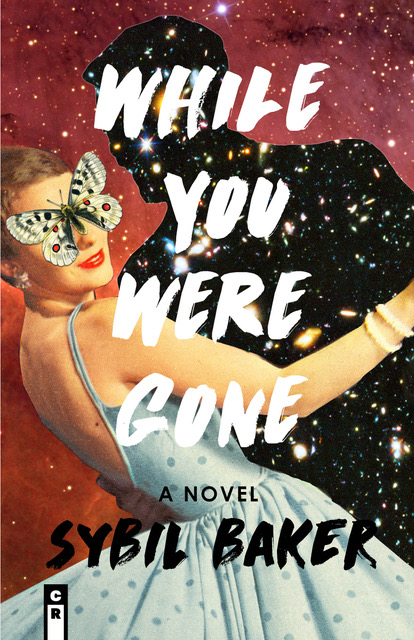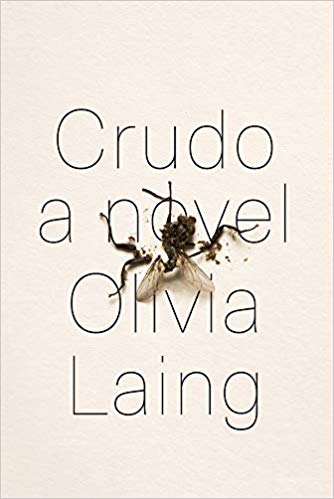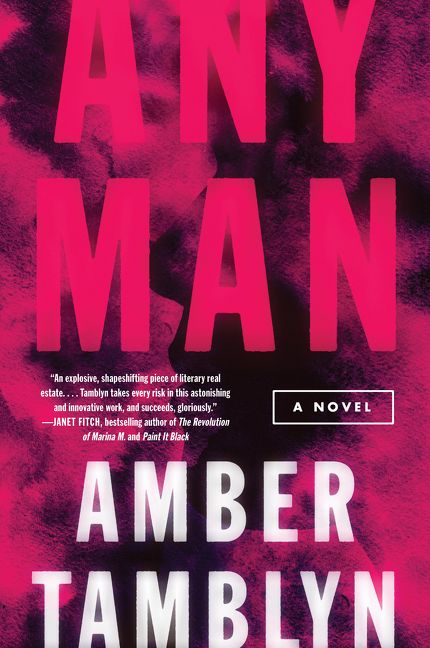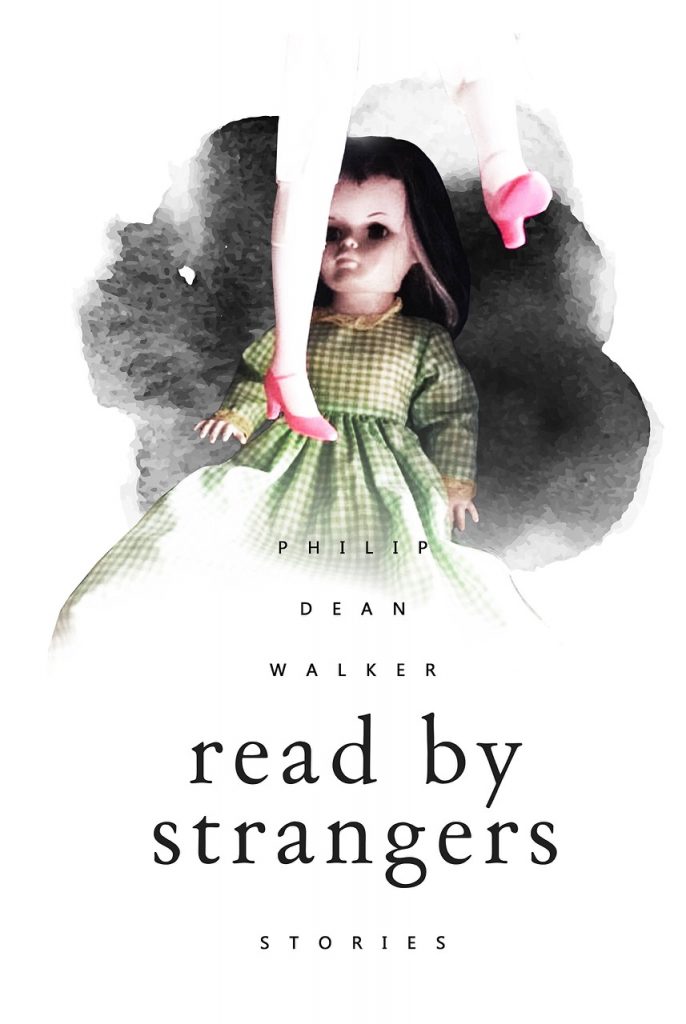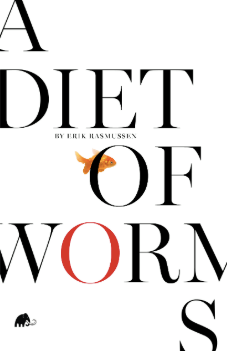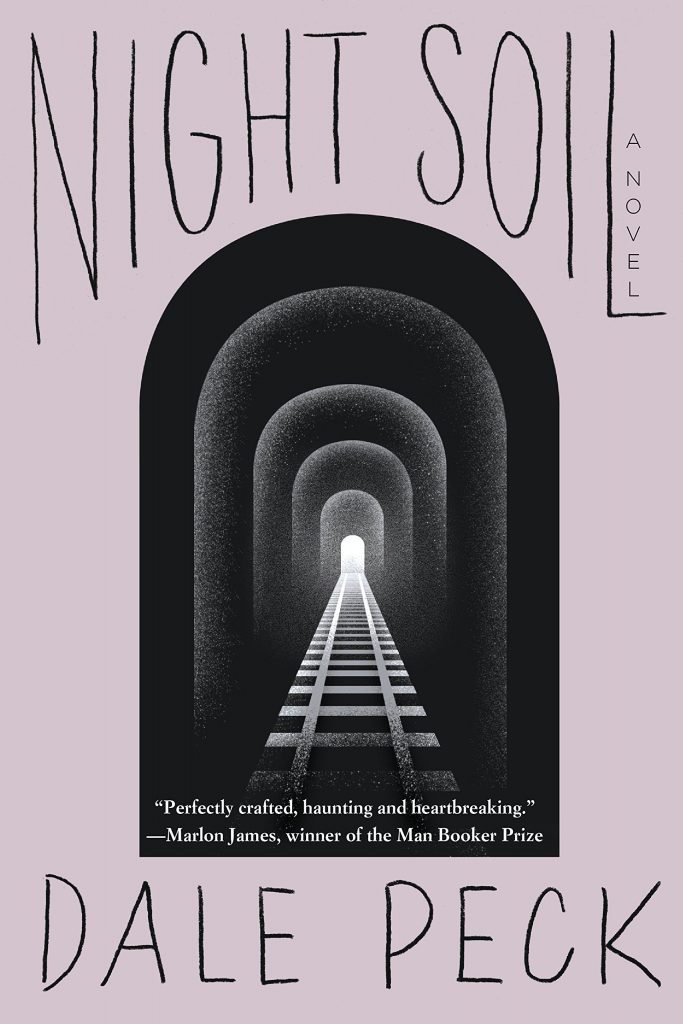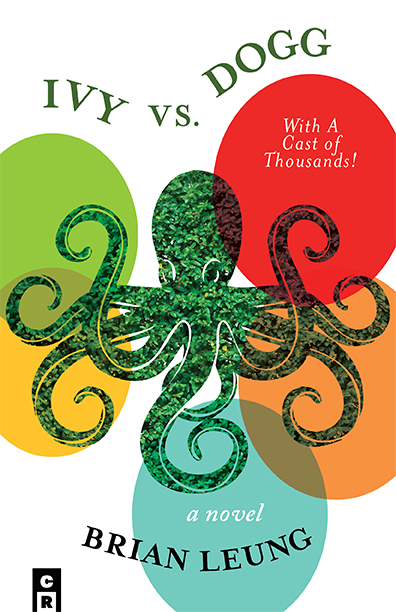INTERVIEW BY JENESSA ABRAMS
–
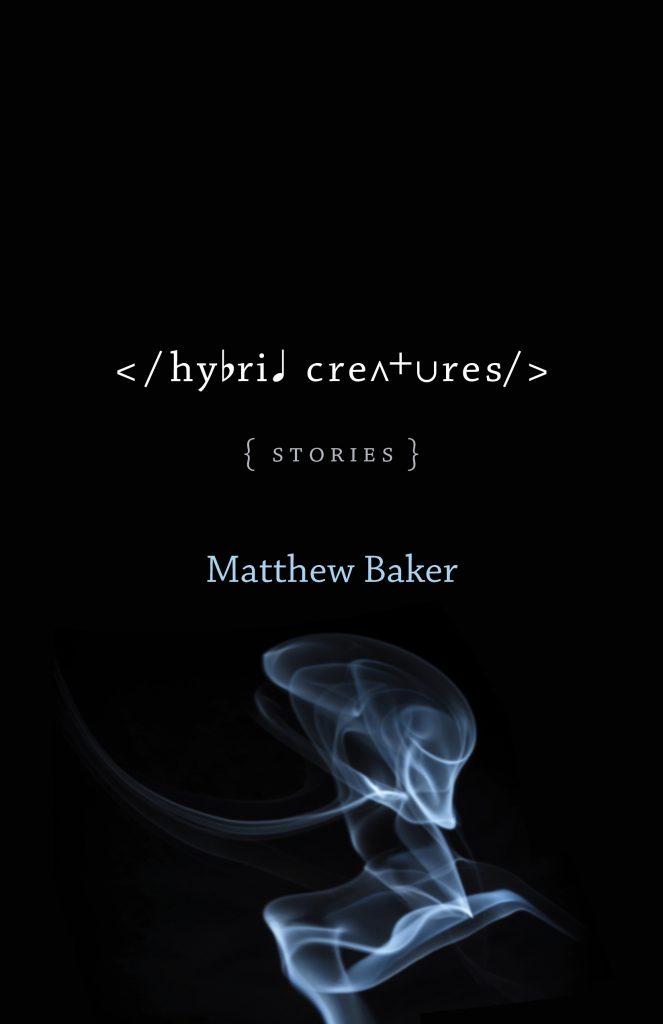
(LSU Press, 2018)
We are navigating a tight kitchen. Matthew Baker is peeling sprouts off potatoes that have been aging on the counter. He’s planning to make corn chowder. I’m pouring baking soda into a measuring cup. When he reaches for a knife, I am using it to chop garlic. The pot I’ve put out to boil water for my pretzel rolls, he places a square of butter in for his soup. We move in sync and completely out of tune. We’re wearing pajamas. We’re wearing pajamas because we’re both writers who work from home, and also, we live in that home together. Much before our co-habitation, we interrogated one another at an artist residency in Vermont. Ever since, we’ve bombarded each other with questions, sometimes in a hybrid of languages. We are not strangers to inquisition, and Baker is no stranger to formal experimentation, as his debut novel, If You Find This (Little Brown, 2015), a middle grade mystery about familial love and redemption, infuses mathematics and musical notation in the prose. Three years later, enter: Baker’s debut collection. Hybrid Creatures (LSU Press, 2018) is a four-story collection, each of which is told partially in a hybrid language: HTML, mathematics, musical notation and formal logic. I first read the book in an earlier draft in PDF form. Now there is a box of paperbacks from the publisher in my living room. The conceit of Hybrid Creatures is that there are some human experiences that can only be communicated through hybrid tongues. Here, as the author’s partner, now acting as formal interviewer, while cooking alongside him, I will try to do something similar.
JA: Most evenings, when we sit down to talk, we begin with the directive: Tell me a thing or en français: Dit moi un chose, so this shouldn’t be such a leap. Tonight, tell me a thing about the inception of Hybrid Creatures. From writing the first story, did you know you were going to sculpt a collection of hybrid pieces?
MB: (meticulously chopping potatoes in quarters)
My last semester of college, I did an independent study on comics and graphic novels, which got me thinking a lot about different storytelling mediums, and the types of storytelling maneuvers that you can only do in certain mediums. For instance, a really obvious example in film would be how you can switch back and forth between color and black and white, like in The Wizard of Oz, or even Schindler’s List. Or in comics and graphic novels, the types of maneuvers that Chris Ware does with stories told in diagram form. So, I was thinking a lot about that, and about prose, and trying to think of storytelling maneuvers that only prose writers can do.
JA: (watching pretzel rolls as they rise underneath oiled plastic wrap)
That shift into color in The Wizard of Oz is something so particular to the medium. It creates an emotional experience that works solely because we can experience an altered perception of the world visually. I’m wondering about the forms you chose for the stories in Hybrid Creatures. How did you decide which hybrid language was going to go with which narrative?
MB: (plops quartered potatoes into pot)
Well, I didn’t really. I started with the languages. Before I wrote the stories in the book, I wrote a collection of prototype stories, and in each of those, that was all there was, the artificial language, and then I would design the story around that—but I wasn’t satisfied with the prototypes. I wanted to find some way to write stories that not only would use artificial languages from these other fields, but that would incorporate artificial structures from those fields too. So, when I wrote the final stories—the stories in the book—I started with the language, then I chose a structure, and then I designed the entire story around that.
JA: So then the characters in the book, or at least the protagonists or narrators, became people who had a need for that language, or who had an ability to communicate in that language?
MB: (adding butter to sautéing potatoes)
Yeah, the narrator or the protagonist of each story was determined by whatever the lexicon of that particular story was going to be—someone who would speak that language, and who might interpret their experiences and understand their world through that language, and through the corresponding artificial structure.
I like that we’re doing this while we’re cooking, but I also wish that we could just look at each other while we’re talking.
JA: (walks over to stove, stares at Baker)
In contrast to those complex structures, I was struck by how traditional the stories themselves were. It felt almost like an equation—if you had equally complex narratives, in addition to the experimental forms, maybe the stories wouldn’t work.
MB: (stirring sautéing potatoes)
That wasn’t a realization I made until after I had written the prototypes. One of the prototypes was this story published in Conjunctions called “Proof Of The Monsters.” Not only was that story experimenting with the linguistics of formal logic, but it also was randomly written in diary form, and then it also had these speculative sci-fi elements—it was just too much. There was too much happening. So, that was a lesson I learned from writing that story: I needed to simplify things.
When I first started seriously writing, one of my writing mentors was the poet Jack Ridl. You’ve never met him. He’s this kind, wise old poet. After spending three semesters together, the final thing he said to me about my work, the one lesson he wanted me to take away was: If you are going to do a weird thing, only do one weird thing at a time. He probably phrased it much more articulately than that, but that was the gist of it and that was what I took away.
JA: My mentor, Elissa Schappell said something similar about how to balance language and action—the necessity to lower one when amping up the other.
MB: (adding water to pot)
Only do one weird thing at a time was very important advice for me as a writer—in some ways it was the key to figuring this project out.
JA: I have to ask about the mathematics story, “The Golden Mean.” I find that story to be the strongest in the collection, for several reasons, but one being that there is an emotional honesty and vulnerability that is enormously affecting. As you know, I write from experiences that very much look like life, situationally, although my characters are always fictively constructed. You have a very similar familial makeup to the protagonist in “The Golden Mean” in that you come from divorced parents and move between two families. What happens when we write from life?
MB: (laughs and turns the intensity of the stove burner up)
That’s a brilliant question. Can I respond with a question of my own: Is this all the corn we have?
JA: (grabs stool and heads to cabinet)
I believe so, but let me check—oui, mais we have two cans of black beans.
MB: Merci beaucoup, we don’t need them.
JA: Bien. I didn’t forget my question. And don’t forget to warn me when it’s time to start boiling pretzel rolls.
MB: Parfait, we aren’t quite there yet.
JA: The mathematics story—
MB: (adding corn to pot)
Right. When I wrote my children’s novel, If You Find This, I deliberately wrote a book about a dying grandfather as a way to try to process the experience of losing my grandfather. The process of writing that book was therapeutic for me. But for “The Golden Mean,” it wasn’t about trying to figure out anything for myself—it was about trying to express, the best that I could, what it’s like to be a person caught in the circumstance of existing in two families simultaneously.
JA: And you achieve that with the structural division. We feel the incompleteness. In your first book, even if you wrote it, in part, to process your grief, you were also able to intimately communicate the experience of loss to your readers. But here, I suppose what you’re saying is: the math story is less for you and more for us.
MB: Exactly. For me, this project was about taking these very familiar cliché storylines—having divorced parents, losing your spouse, having dementia—and attempting to find a way to make a reader truly feel those experiences. Trying to develop a storyline to use in conjunction with formal logic, for instance, I realized that writing about a character with dementia could potentially be very powerful, because for a character who thinks about the world in terms of formal logic, there would be nothing more devastating or world-altering than to lose the ability to think logically, in a clear sequential order.
JA: That devastation is palpable. It reminds me about what we were speaking about last night, the book and subsequent film Still Alice, and the play Wit. I think in all three examples, the third being Hybrid Creatures, there is a nuanced dimension of poignancy when the individual experiencing failing mental capacity identifies so deeply with their intellect.
MB: And of course, not everyone has a job that requires working with an artificial language or that necessarily shapes the way that you perceive the world. I think many people do experience this, though, across a wide range of fields. For instance, I have a brother-in-law who’s a chemist—maybe that’s a strange way to phrase it, because you know who my brother-in-law is, but for readers—
JA: He’s also very good at board games, but, yes, your brother-in-law, the chemist—
MB: I asked him recently how much his study of chemistry affects his everyday experience of the world. Like for instance, if he was cooking and he was caramelizing some onions and he had butter and sugar and salt and onions in a pan, was he thinking about the chemical reactions happening in the pan at that moment, as he was cooking, or was he just thinking about how good the caramelizing onions smelled?
JA: (hops onto counter)
I love that question.
MB: He said that the answer was both, that he’d be thinking about how good the caramelizing onions smelled, but that he’d be thinking about the chemical reactions happening in the pan too, and that to some extent he’s always thinking about it—that his knowledge of chemistry affects every experience he has. The first time I ever saw that phenomenon replicated in fiction was in the novel We by Yevgeny Zamyatin—have you read that?
JA: I have not.
MB: Oh, you need to read it. It’s brilliant—also, time to start boiling the pretzel rolls.
JA: (hops off counter and turns on oven)
On it. Now, I want to talk about the influence of research on your writing. I know you’re insatiably curious and your hunger for knowledge leads you to incorporate so much from the world into your work. The result is that it feels like you have an intimate knowledge of so many diverse fields—which is another way of saying, like I’ve often suspected, maybe you’re a robot—or another alternative: the internet has given you a way to be a specialist in everything.
MB: (stirring soup)
A lot of it is research. For instance, even though I studied music and knew how to read sheet music and music dynamics, I wasn’t intimately acquainted with the structure of a classical symphony and the structure of the different movements within a classical symphony. Nonetheless, it was important to me for “Movements,” the music story in the collection, that each of the four sections have the same narrative development as the corresponding movement would have in a traditional symphony.
JA: You do a lot of that work in everything you create, where you bury or embed things that an average reader may not pick up on. It seems deeply important to you.
MB: I love video games, and a wonderful and maybe unique tradition within that storytelling medium is the tradition of the Easter egg—hidden content, bonus content, that can be unlocked or discovered if you invest enough time in exploring the story. As a writer, I’m interested in trying to hide as many Easter eggs as possible in each of my stories, to make it as rewarding as possible for a story to be read multiple times—so that potentially, every time it’s read, the reader can make another startling and wonderful discovery. They’re usually in-jokes. Does that make any sense?
JA: (turns on burner for saucepan)
It makes complete sense. The veracity of your worlds comes through in all of your work. I keep thinking about the philosophy story and the conversations that take place throughout it in the background. It’s an interesting experience for the reader because we’re following a protagonist who is confused about where he is and who he is, and you’ve added all this external chatter. In a lesser narrative, that chatter might just be funny or mildly interesting, but here, the conversations feel inherently connected to the larger story.
MB: Well, this was a terrible idea, as usual—
JA: Interviewing while cooking?
MB: Well yeah, that, but also, I got this idea into my head that because “Proof Of The Century” was going to try to tell the entire story of a nearly hundred-year-old man’s life, and because it was also going to try to tell the story of an entire country over that same hundred-year period, I might as well, at the same time, try to incorporate every major subfield of philosophy into the story too.
JA: That is a terrible idea.
MB: So yeah, you’re right, those background conversations at the family “symposium” are meant to contribute thematically, in that these different characters—in a very casual, everyday, holiday get-together setting—are debating a wide range of subjects that philosophers have been debating for centuries. Ethics, aesthetics, political philosophy, etc. Maybe that wasn’t your question.
JA: (watches over saucepan as water begins boiling)
I’m not sure I asked one.
MB: Something else I can tell you about “Proof Of The Century” is that it was also important to me that the proofs in the story include all the basic maneuvers used in formal logic. In the same way that in skateboarding there’s this basic vocabulary of tricks or moves that you can do, in formal logic there’s this basic vocabulary of moves or tricks that philosophers use. Modus ponens, modus tollens, etc—they’re the ollies and nollies of formal logic. In thinking about the various proofs embedded within that story, I decided it was important to incorporate all of those maneuvers at least once—which, again, was a terrible idea, but I did it.
JA: (dumping baking soda into saucepan)
You’re you. Of course, you did.
MB: (staring into foaming saucepan)
That’s a fun reaction! If only the chemist could be here to see it.
JA: (begins dropping in pretzel rolls)
C’est le meilleur. I think we should talk about loneliness. Since language is the way we communicate, I’m curious how isolation features into the book. For me, the reading experience created a connection and sort of broke the individual isolation of your characters and I’m wondering if that was intentional—if you thought at all about the fact that language is the means through which we communicate and that your characters exist primarily in varying forms of seclusion.
MB: Well, for a character who thinks about the world in a hybrid language, who is fluent both in English and some artificial language like HTML, I think that can be isolating—in the same way that if you grow up speaking English and Mandarin, when you’re around people who only speak English, sometimes there will be things you want to express that are impossible to say.
JA: (places pretzel rolls on baking sheet)
And I felt like the hybrid languages were a way to express that which would previously be inexpressible.
MB: Yeah, I think for some of the things you could paraphrase it in English or try to find a synonym, but it wouldn’t quite be the same. You translate stories from French, and I know you’ve said that there are words and phrases in French that no matter how close you get to translating them into English words, sometimes you can’t quite capture the meaning. And that’s just as true for HTML, or music dynamics, or math notions, or formal logic, as it is for French and any other natural human language.
JA: In a way your hybrid languages feel like a form of abstract translation. Let me put these in the oven—
MB: I wonder if this is the first author interview ever to be conducted while both the author and the interviewer were in a kitchen cooking a meal together.
JA: Both in pajamas, bumping into each other in a tiny kitchen—actually, let’s talk about us. We sometimes communicate in a hybrid tongue.
MB: Yeah, in this apartment we primarily speak English, but we also speak in French and Spanish and Italian and now Japanese. But yeah, what’s your question?
JA: Well, talk to me about that. I know for me, there is an additional meaning in saying I love you in very rudimentary Japanese. The texture and emotional experience is different than expressing it in English.
MB: Tell me about the experience.
JA: (walks over to where Baker is searching the spice rack)
I think there is this idea that when I say I love you in Japanese, you’re the only person I’ve ever said I love you in that language to before, and it’s this created thing, learning Japanese together—there is an added level of intimacy, not just in its singularity, but in that it’s connected to a culture that means so much to you. Maybe it’s the same thing in reverse with French. Does that make sense?
MB: (holding cayenne)
Désolé, I need to get to the pot.
JA: Tu est le plus romantique. I guess what I’m trying to say is, until I thought deeply about your book and even about having this conversation, I always just took us speaking in those different languages as an aspect of our relationship. I didn’t necessarily sit with what it meant—with why we do it. Or with why it’s so meaningful.
MB: Well, when you speak two languages, say English and HTML, it’s limiting in a way, because most people speak only one of those languages, but it’s also liberating in that with certain people it allows you to communicate in a richer way, or to communicate more than you could communicate before. And when you speak multiple languages—if you speak, like we do, in English, French, Spanish, Italian, and Japanese—then it’s even more liberating because it allows us to say things that we weren’t able to say with English alone. Like I love you, or J’adore tu or Aishiteimasu. Even if they don’t come with subtly different meanings, eventually they take on subtly different meanings, in the same way that sometimes you want to say I’m hungry and sometimes you want to say I’m starving and sometimes you want to say I’m ravenous. I think it feels special and meaningful because it allows us to communicate even very basic things in a deeper, more nuanced way.
JA: I think your stories do the same thing. And I think, in many ways, the characters in your stories probably wouldn’t be able to express themselves without the accompanying languages—or their emotional experiences wouldn’t be able to be communicated without them—Let me just quick check on the pretzel rolls. They’re done!
MB: The soup is ready too.
JA: Parfait, let’s eat.
(walking over to table with soup and pretzel rolls in hand respectively)
MB: (reaching for a pretzel roll)
I’m very grateful to the editors, both at the magazines that originally published these stories and at LSU Press, which published the collection. The formal constraints for this project added a layer of difficulty not only for me but for the editors too. Oh, these pretzel rolls are a masterpiece!
JA: Merci beaucoup, I had to work with my own constraints because we ran out of yeast.
MB: Zut alors.
JA: In thinking again about constraints and experimentation, I’m wondering about Hybrid Fictions, the course you’re currently teaching at my alma mater, The Gallatin School at NYU. Aussi, the soup is trés bien.
MB: Merci beaucoup, Parfait. In Hybrid Fictions we exclusively read and write interdisciplinary fiction: fiction that incorporates subject-specific language, forms, and concepts from other fields of study. Biology, physics, etc. We’re writing stories in the form of architectural blueprints. We’re writing stories in the form of chemical compounds. So, it’s a workshop in a hyper specific subgenre of experimental fiction.
My students registered for this course voluntarily, of course, but still, sometimes these writing prompts make them nervous. I think it can be terrifying, as a young writer, to even conceive of, let alone to actually dare, to break from tradition and to try something new. I think another great fear for young writers is that, if they do attempt something new, that their work will be perceived as gimmicky. Which is a legitimate fear, of course. I try to emphasize that it’s not enough simply to tell a story through some new interesting lexicon, or language, or structure, or form—that it’s still crucial for the story to have an effect on the reader, emotionally and intellectually, and that ideally the experiment should be used to tell a story that’s only possible to tell in this new way.
JA: It isn’t enough to be flashy. It has to actually do something. It has to be affecting.
MB: (dips a pretzel roll into the soup)
To me, that’s the difference between a gimmick and a story that’s worth reading. There are people who write experimental fiction in which there’s absolutely no connection between the experiment and the actual story—the plot and the characters. It’s just an experiment attached to some random story. No matter how brilliant and innovative the experiment is, work like that doesn’t interest me. It’s like watching somebody who’s invented a rocket shoot a rocket into the air for no other purpose than just to show everyone that they can build a rocket. Just to make a loud noise. A bright light in the sky. The experimental fiction that I love, the experimental fiction that excites me, are experiments that are done for a purpose: writers who aren’t just shooting a rocket into the air to show off, but because they’re trying to put a satellite into orbit, or because they’re trying to land astronauts on the moon.
JA: It seems fitting for us to end with space. Both you and your stories are not quite of this world.
__
Jenessa Abrams is a Norman Mailer Fiction Fellow and a Columbia MFA graduate in fiction and literary translation. She has been awarded fellowships and grants from the MacDowell Colony, the Ucross Foundation, the Vermont Studio Center and Columbia University. Her writing has been published in Tin House Online, TriQuarterly, Joyland, Washington Square, BOMB Magazine, Guernica, The Offing, The Rumpus, and elsewhere. Recently, she was named a finalist for Narrative Magazine’s 30 Below Contest and both Glimmer Train’s Very Short Fiction Award and Fiction Open Award. Her work was nominated for the 2017 PEN/Robert J. Dau Short Story Prize for Emerging Writers. She currently holds a research fellowship at the New York Public Library and is pursuing a graduate degree in Narrative Medicine at Columbia University.
Matthew Baker is the author of Hybrid Creatures, a collection of stories written in hybrid languages, and the children’s novel If You Find This, which was named a Booklist Top Ten Debut and nominated for an Edgar Award. His stories have appeared in publications such as American Short Fiction, New England Review, One Story, Electric Literature, and Conjunctions, and have been anthologized in Best of the Net and Best Small Fictions. A recipient of grants and fellowships from the Fulbright Commission, the MacDowell Colony, the Ucross Foundation, the Ragdale Foundation, Vermont Studio Center, Virginia Center for the Creative Arts, Blue Mountain Center, Prairie Center of the Arts, Djerassi Resident Artists Program, the Sewanee Writers’ Conference, and the Bread Loaf Writers’ Conference, he has also taught at Vanderbilt University, where he was the founding editor of Nashville Review.
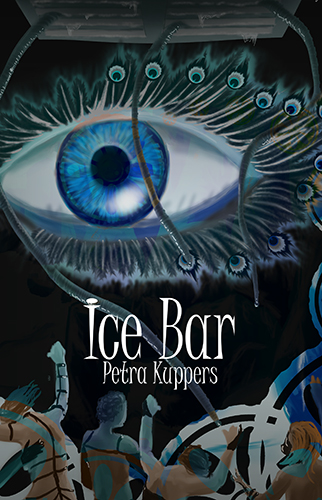
![[PANK]](https://pankmagazine.com/wp-content/themes/pank/assets/images/pank-logo-large.png)

